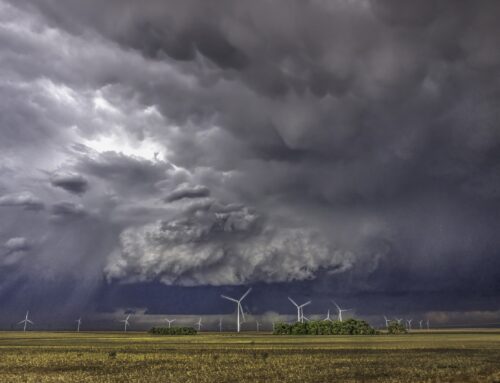For affiliates in the United States, hurricane season is upon us, with the Pacific hurricane season starting May 15 and the Atlantic season beginning June 1. The risk of Atlantic and Pacific hurricanes will last until November 30.
Every hurricane season brings the potential for widespread damage, so it’s important to be prepared. According to the National Oceanic and Atmospheric Administration, there were over 50 tropical storms and hurricanes affecting the United States in 2020, with damages costing over $95 billion.
Hurricanes always cause widespread damage when they hit. Coastal areas are most at risk, but so are areas as much as 200 miles inland. For any affiliates in the path of a potential hurricane, it’s important to have a plan in place before the first storms arrive.
Create an emergency communication plan
If disaster strikes, it will be important to get information and relay instructions to people in your affiliate. An emergency communication plan helps ensure you are prepared to respond effectively before, during and after a storm. The National Weather Service recommends addressing the following questions when you create your plan:
- How will we receive emergency alerts and warnings?
- What is our shelter plan?
- What is our evacuation route?
- What is our plan for communicating with our employees, volunteers and families?
Your emergency communication plan should provide detailed answers to these questions that you can then share with employees and volunteers.
Keep a stocked emergency kit available
Once a hurricane is bearing down, it may be too late to gather necessary supplies. Regional supply chains may be disrupted, and local stores may close early to prepare. Plan to gather what you need now, while your local shelves are stocked.
Should a storm hit while employees, volunteers, or customers are at your affiliate, it is important to have a disaster kit available with supplies that include:
- Battery operated radio with extra batteries
- Three-day water supply (1 gallon of water per person, per day)
- Non-perishable, three-day food supply
- Fully stocked first aid kit
- Flashlights with extra batteries
- Generator and fuel
- Emergency contact information
When a storm is predicted to pass through your area, recheck your emergency supplies to make sure you haven’t run out of anything you might need.
Know your local community’s evacuation plan
Every locality makes safety and security decisions during a hurricane event based on advice from the experts, weather forecasts and local factors. Information and instructions can change quickly, so it’s important to stay tuned to emergency advisories and orders.
Always listen to local officials. If evacuation is necessary, take your emergency supply kit, leave early enough to avoid the severe weather, and follow recommended routes. If you have time before evacuation, do what you can to protect your affiliate’s property but always prioritize personal safety.
Protect your affiliate’s property
Taking the right precautions before a storm arrives or evacuation order is given can make all the difference. Certain safety measures have been shown to reduce the risk of damage to your property, which may help you get back to normal faster.
Keep a checklist of measures to take if a hurricane is predicted, including:
-
- Sandbag any area that is at risk of flooding.
- Cover over windows with plywood or shutters.
- Anchor and brace any large furniture to wall studs.
- Unplug electrical equipment such as computers and TVs.
- Leave fridges and freezers plugged in unless there is a risk of flooding.
- If instructed by authorities, turn off all the utilities before the hurricane makes landfall.
- Contact employees and volunteers informing them of the closure.
The hurricane season of 2021 has the potential to be another record year, with powerful storms that do a lot of damage. Summer is always busy time at the local affiliate, but it’s important not to neglect your hurricane preparedness plan until it’s too late. Take the time now to plan and prepare so that you’re ready for whatever storms come your way.





